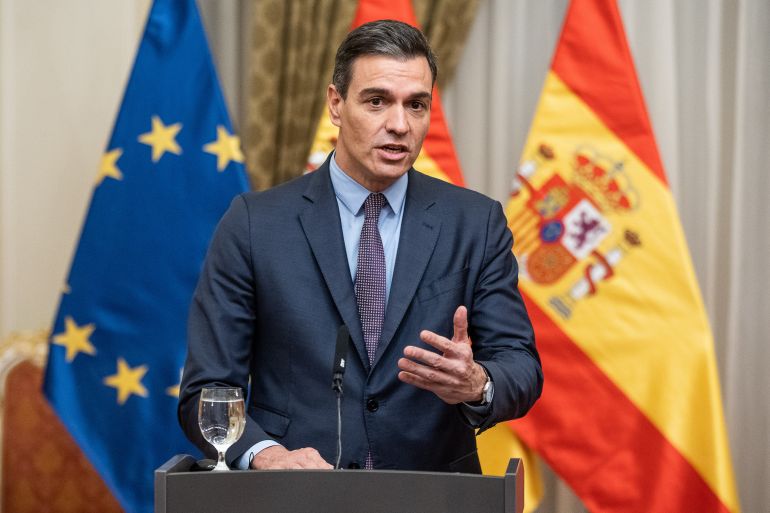Spain unveils $17.5bn economic plan to ease effect of Ukraine war
The country’s prime minister says the plan aims to help businesses and households weather the rising energy costs through state aid and loans.

Spanish Prime Minister Pedro Sanchez has announced a 16-billion-euro ($17.5bn) economic plan that includes state aid and loans to help businesses and households weather the sharp rise in energy costs due to Russia’s war in Ukraine.
The plan provides for tax cuts worth 6 billion euros ($6.5bn) and a further 10 billion euros ($10.9bn) in aid from the state-owned development bank ICO, Sanchez told business leaders in Madrid on Monday.
Keep reading
list of 3 itemsRussia-Ukraine war is hurting Zimbabwe’s struggling economy
Putin’s war to wipe out 15 years of progress for Russian economy
The government aims to reduce the price of petrol and diesel fuel for all consumers by 20 euro cents per litre (74 cents per gallon). The state would contribute 15 euro cents per litre (55.5 cents per gallon) and the oil companies 5 euro cents (18.5 cents per gallon).
The measures would initially apply until June 30 and are set to be officially approved by the Cabinet on Tuesday.
Meanwhile, Spain and Portugal are looking to decouple the price of electricity from that of gas.
The two countries are due to present a plan to the European Commission this week on how much the reference price of natural gas – which is used to calculate the electricity price – should be reduced.
Special regulations
At a European Union summit on Friday in Brussels, both countries had negotiated special national regulations for gas price caps for themselves in order to make electricity cheaper.
With the package of measures, Madrid is hoping to quell brewing discontent. In addition to energy price hikes, consumers and businesses are dealing with supply bottlenecks because of protests by truck drivers.
The government had already agreed with the representatives of the umbrella organisation of the Spanish trucking companies, CNCT, on subsidies amounting to about 1 billion euros ($1.1bn).
However, the president of the Platform for the Defence of the Transport Sector, Manuel Hernandez, who had called for the protests and is not a member of the CNCT, described these subsidies as “crumbs and peanuts”.
The protests would continue into the third week until there was a better offer, he said.